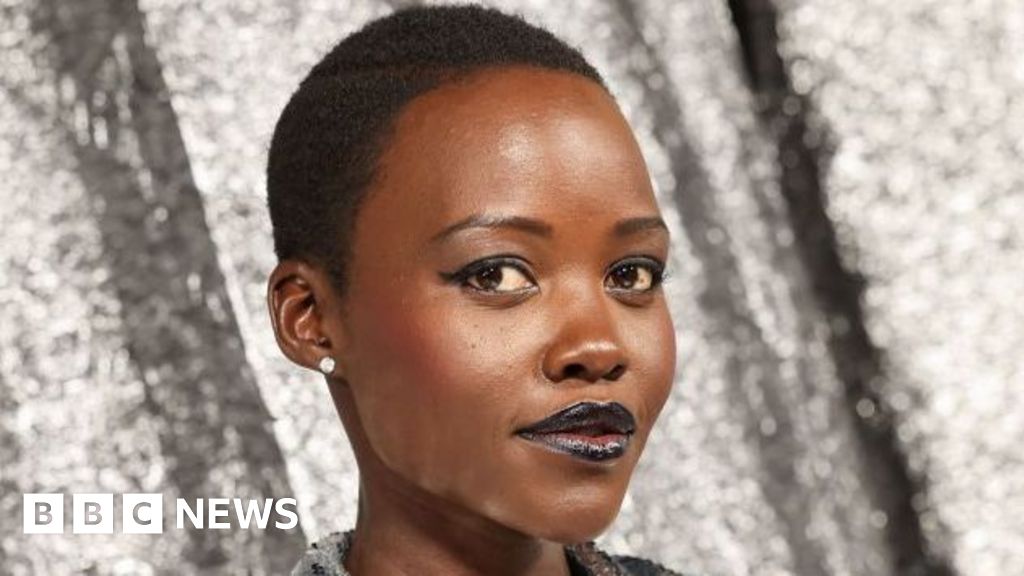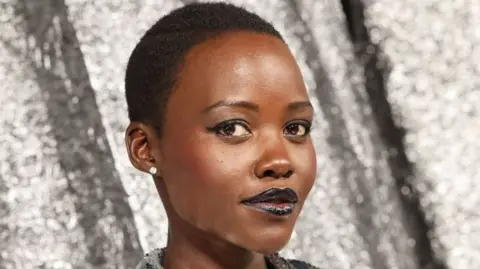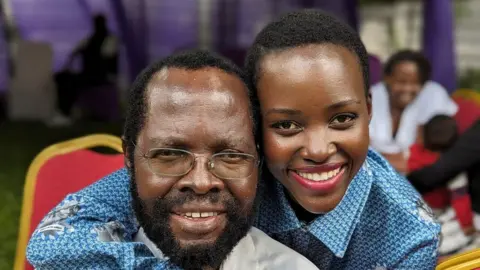
 Getty Images
Getty ImagesActress Lupita Nyong’o has condemned the Kenyan authorities’ crackdown on huge anti-tax protests that began in June.
Demonstrators were met with police brutality, according to rights groups, with dozens of people killed and numerous others abducted.
Nyong’o, whose father was jailed and tortured under a former president, Daniel arap Moi, told the BBC: “It is chilling to know that this government is resorting to tactics that I had thought had been left in the past.”
In response, the government said it was not possible to compare two “very different” administrations and that it “regrets any death that occurred”.
But Nyong’o, an Oscar winner who grew up in Kenya but now lives in the US, said the government’s handling of the protests was “upsetting”.
“The more things change. the more they stay the same… I don’t know how this story ends,” said Nyong’o, who has starred in Hollywood hits like 12 Years a Slave and Black Panther, during an interview about her new podcast.
Her father, Anyang’ Nyong’o, is currently a county governor in Kenya and acting leader of the Orange Democratic Movement (ODM), one of the country’s main political parties.
The governing United Democratic Alliance (UDA) brought ODM politicians into the government in July, as part of a series of measures aimed at placating the protesters.
In the 1980s, Anyang’ Nyong’o, a political science professor at the time, was among a group of academics who organised against Moi’s regime.
Moi, in office from 1978 to 2002, ruled Kenya with an iron fist and ruthlessly suppressed his political opponents.
After Lupita Nyong’o’s uncle, also an activist, disappeared, the family fled to Mexico. Her uncle’s body has never been found, but according to local reports, the family believes he was pushed off a boat.
“I am deeply grateful for the younger people who are on the front lines fighting for a different Kenya,” Lupita Nyong’o said of this generation’s protesters.
Isaac Mwaura, spokesperson for the current Kenyan government, told the BBC that the authorities were “very co-operative with the protesters and acceded to the demands, including the president not assenting to the finance bill”. It was controversial tax measures in that bill that sparked the trouble.
As for reports that people were killed during the demonstrations, Mwaura said: “Only police statistics are official. The government regrets any death that occurred during the protests and anyone who may have caused such will be held responsible following the rule of law.”
 Lupita Nyong’o
Lupita Nyong’oNyong’o detailed her father’s ordeal in the latest episode of her storytelling podcast, Mind Your Own.
In it, Nyong’o and other African contributors tell entertaining real-life tales in order to explore what it means to be from the continent.
So far in the series, accounts have hailed from Ghana, Nigeria, Kenya, Rwanda and the diaspora.
Nyong’o tells her dad’s story in an episode named The Freedom Fathers – the only one so far where politics and oppression are mentioned.
This is intentional – the actress said she wanted to focus on “quirky”, “peculiar” tales rather than well-trodden subjects such as conflict, disaster and poverty.
“I think that all too often we can be narrow about our idea of what is African… I wanted to stay away from the hot button issues that are in the news, that are making it across the globe, because those already exist,” she said.
“What are the stories that we don’t know about – an ordinary person going through an extraordinary situation?”
Although Mind Your Own was produced by American company Snap Studios, numerous African creatives were hired to work behind the scenes.
For example, the podcast’s cover art was made by Mateus Sithole, an artist Nyong’o met in Mozambique, while Nigerian-American musician Sandra Lawson-Ndu did the theme song.
“I really wanted to have as many African hands touch this project as possible. I wanted to send a message, a clear message… this is by and for Africans, without it being exclusionary of anybody else,” Nyong’o said.
However, she acknowledges that it is not possible to encapsulate the entire continent, comprising 54 countries, in one podcast.
“There’s absolutely no way that I would task myself in trying to give the ultimate or comprehensive thesis of Africa – that’s crazy!” she said.
“Africa is going to be as as malleable and as changeable as the people who come from there.
“So we’re never going to be done telling our own stories.”
You may be interested in:
 Getty Images/BBC
Getty Images/BBC
